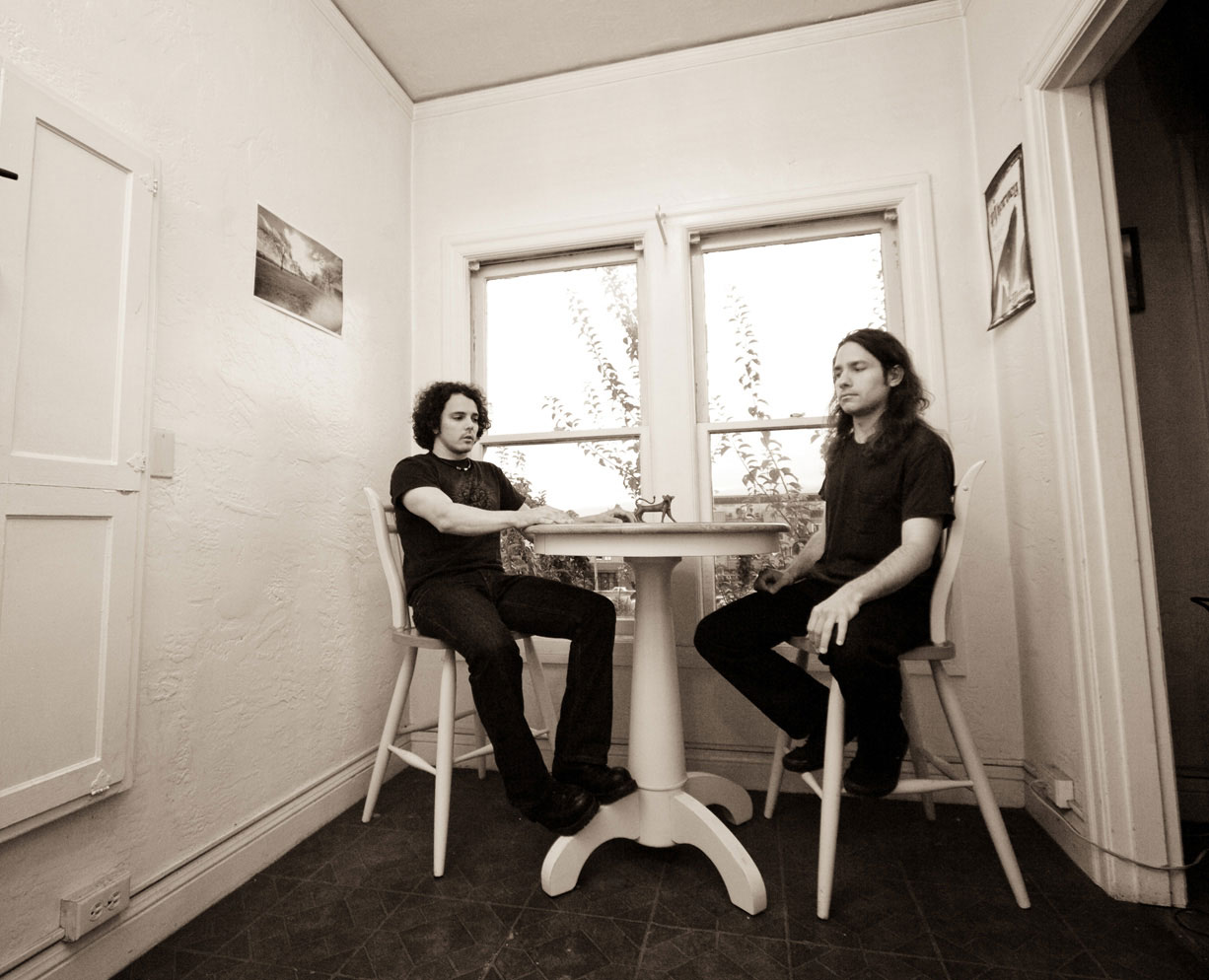Their combination of distorted, unrelenting guitar playing and noisome tom beats lights up a primal, percussive part of the brain while their perfect syncopations and stunning timing ensures that each rhythm is hammered into the listener’s skull. Despite the pitfalls of sharing driving, eating, performing, and sleeping spaces between two people, they found that they had personal, as well as musical, chemistry. To date, they have racked up a shocking 400 shows in only three years of performing.
In many ways, Black Cobra has found that writing and performing music as a duo is easier than as a larger group. “In general, the vision gets made a lot quicker because there aren’t five people’s opinions to consider,” Martinez says. There’s also less gear to take care of and less of a problem finding a place to crash for the night.
On the flipside, the ever-dreaded writer’s block poses a more ominous threat. “Sometimes it’s harder when we hit a wall with things and don’t have a third or fourth opinion on what to do,” Martinez says. Between bouts of touring, the band worked on a split in 2007 with Japanese heavy-psych rockers Eternal Elysium, later assembling the tracks on its sophomore effort Feather and Stone.
Black Cobra’s latest album, Chronomega, focuses the band’s previous efforts without attenuating them. The record comes in, rampages, and suddenly dissipates, much like a tornado. Produced by Billy Anderson, the album captures a closer approximation of the band’s overwhelming live set and has a warmer, fuller sound than its earlier recordings.
There are a couple of surprises in the mix as well. “Lightning in His Hand” is the first Black Cobra song with an overt guitar solo. “In the beginning, it was an intro,” Martinez says. “It was cool and punchy, but we thought, ‘What if we gave it more?’”
M.C. Escher staircase riffs comprise other songs such as “Machine,” “Chronosphere,” and “Storm Shadow” and race at a frantic clip. Landrian’s vocal performance includes more melodic tones in his characteristic throaty shouts. “We wanted to expand the singing too,” explains Martinez, who earns his first vocal credits with the group. “I whisper on the album.”
Although the band has piles of riffs lying suspended on magnetized tape, when it came to studio time, rather than record dozens of tracks and narrow them down into an album, Black Cobra didn’t waste a single moment.
“We pretty much just did the [nine songs] on the record,” Martinez says. “A lot of riffs [from those tapes] grow on a single section. Other times we take seven or more and put them together — we don’t really have a single way of doing it.”
That means that many of these ideas could surface on record at a later date. In an age where heavy music is dominated by expansive, dreamy bands, it’s nice to hear a band that’s first and foremost about raw, unfettered energy and ideas.

